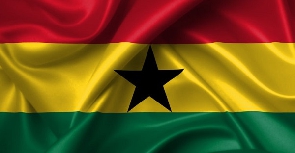Ghana, under the leadership of President John Agyekum Kufuor, joined the Heavily Indebted Poor Countries (HIPC) in 2002. This was a time when the economy was grappling with overwhelming debt and abject poverty.
The International Monetary Fund (IMF) and the World Bank Group's International Development Association (IDA) on February 22 and 26, 2002, respectively, agreed to support a comprehensive debt reduction package for Ghana under the enhanced HIPC initiative.
Ghana's debt of approximately US$3.7 billion was cancelled by the creditors.
As the local economy has been in shambles since 2020, some Ghanaians have been wondering whether Ghana will return to HIPC.
Reacting to this on GhanaWeb TV's The Lowdown programme hosted by Daniel Oduro, lecturer at the University of Ghana Business School, Professor Lord Mensah, has indicated that it is impossible for Ghana to go back to HIPC.
He said, "We can't go back to HIPC because the type of loans that will call for HIPC are not the type of loans we are holding now. The loans that took us to HIPC were more or less like government-to-government loans. That one, a government can sit somewhere through their parliamentary approval and say they have forgiven you."
Professor Lord Mensah noted that the conditions attached to the debt cancellation were to ensure that countries under HIPC used the monies owed to creditors to improve the lives of the citizens by providing quality healthcare and construction of roads, among other developmental projects.
It would be recalled that the Government of Ghana, guided by the Ghana Poverty Reduction Strategy (GPRS), drafted a detailed plan per the programme's requirement for the use of funds made available through debt relief under the enhanced HIPC Initiative.
The government in the GPRS indicated that the HIPC Initiative relief would primarily target the allocation of funds towards enhancing education, healthcare, rural infrastructure, and governance.
A portion of the relief was also earmarked to alleviate the significant burden of domestic public debt.
Meanwhile, former President John Agyekum Kufuor, in a recent talk at a grand durbar of chiefs and people of Larteh Akwapim, explained that the decision of his government to declare Ghana an insolvent state, thus a Highly Indebted Poor Country (HIPC) was due to the firm assurance of debt cancellation he received from two female British politicians, Baroness Valerie Amos and Clare Short.
SA/NOQ
Business News of Wednesday, 21 February 2024
Source: www.ghanaweb.com













